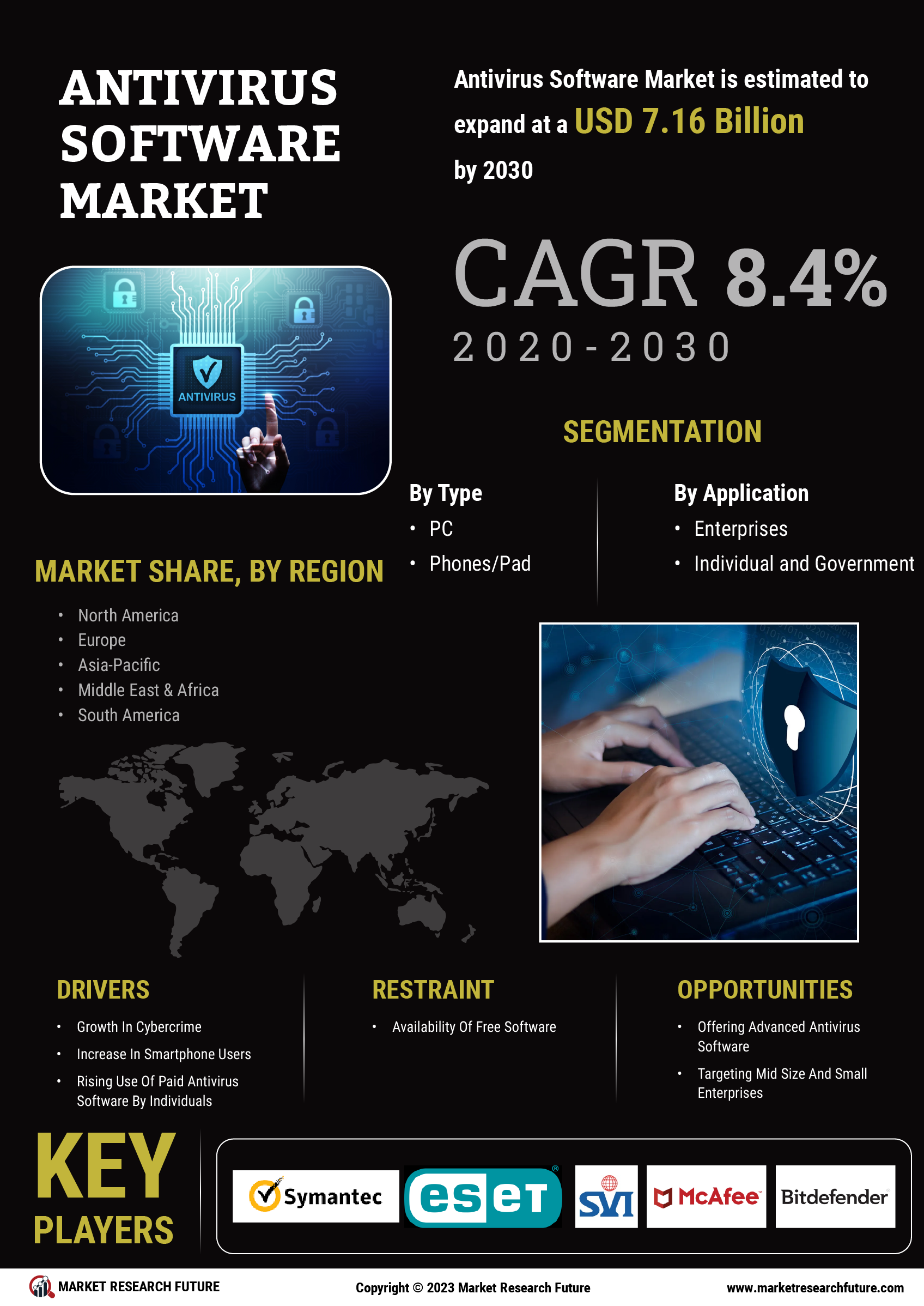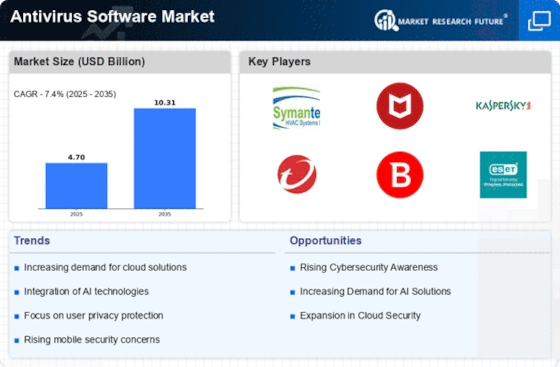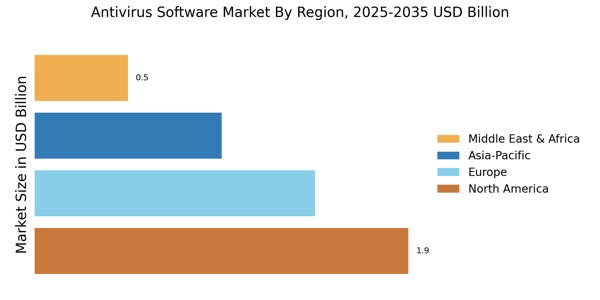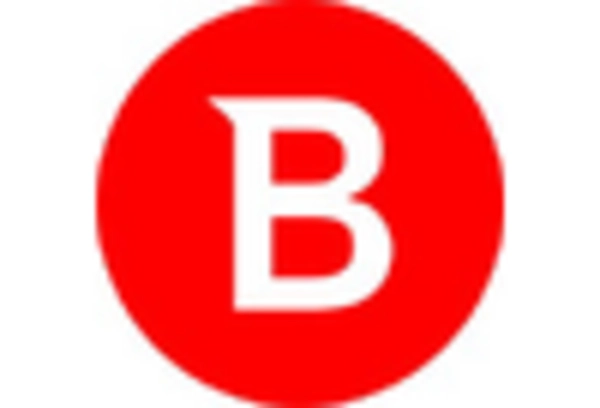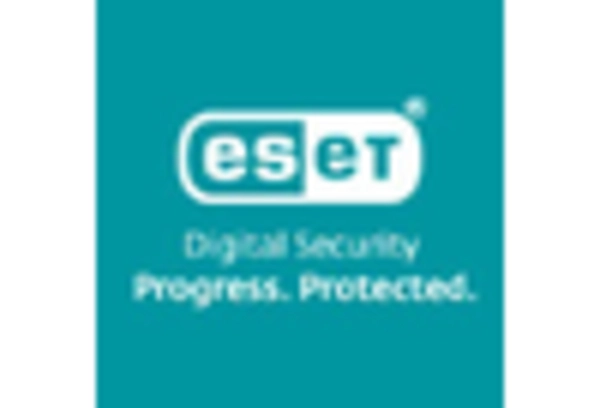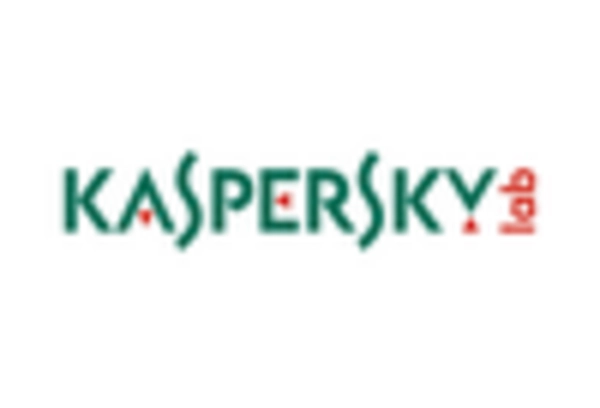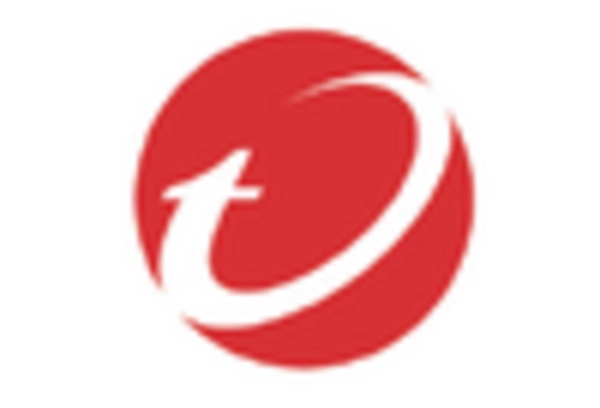Rising Cybersecurity Threats
The increasing frequency and sophistication of cyber threats is a primary driver for the Antivirus Software Market. As organizations and individuals face a growing array of malware, ransomware, and phishing attacks, the demand for robust antivirus solutions intensifies. In 2025, it is estimated that cybercrime will cost businesses over 10 trillion dollars annually, underscoring the urgency for effective cybersecurity measures. This alarming trend compels users to invest in antivirus software to safeguard their sensitive information and digital assets. Consequently, the Antivirus Software Market is experiencing a surge in demand as consumers seek reliable protection against these evolving threats. The need for continuous updates and real-time protection further propels the growth of this market, as users require solutions that can adapt to the ever-changing landscape of cyber threats.
Increased Adoption of Remote Work
The shift towards remote work has significantly influenced the Antivirus Software Market. As more employees work from home, the potential for security breaches increases, prompting organizations to prioritize cybersecurity. In 2025, it is projected that over 30% of the workforce will be remote, creating a pressing need for effective antivirus solutions to protect both personal and corporate data. This trend has led to a heightened awareness of cybersecurity risks among employees, driving demand for comprehensive antivirus software that can secure various devices and networks. Furthermore, businesses are investing in antivirus solutions to ensure compliance with data protection regulations, thereby enhancing the overall security posture of their remote workforce. The Antivirus Software Market is thus positioned for growth as companies seek to mitigate risks associated with remote work environments.
Growing Awareness of Cybersecurity
The growing awareness of cybersecurity issues among consumers and businesses is a crucial driver for the Antivirus Software Market. As high-profile data breaches and cyberattacks make headlines, individuals and organizations are becoming increasingly vigilant about their online security. In 2025, surveys indicate that over 70% of consumers prioritize cybersecurity when choosing software solutions, reflecting a shift in mindset towards proactive protection. This heightened awareness is prompting users to invest in antivirus software as a fundamental component of their digital security strategy. Furthermore, educational initiatives and campaigns aimed at promoting cybersecurity best practices are contributing to this trend, fostering a culture of security consciousness. As awareness continues to rise, the Antivirus Software Market is poised for growth, as more users recognize the necessity of robust antivirus solutions to protect their digital lives.
Regulatory Compliance Requirements
The increasing emphasis on regulatory compliance is a significant driver for the Antivirus Software Market. Governments and regulatory bodies worldwide are implementing stringent data protection laws, compelling organizations to adopt robust cybersecurity measures. In 2025, it is anticipated that compliance with regulations such as the General Data Protection Regulation (GDPR) and the California Consumer Privacy Act (CCPA) will necessitate the use of advanced antivirus solutions. Organizations that fail to comply with these regulations may face substantial fines and reputational damage, further incentivizing the adoption of antivirus software. This regulatory landscape creates a favorable environment for the Antivirus Software Market, as businesses seek to ensure compliance while protecting sensitive data from cyber threats. The need for continuous monitoring and reporting also drives demand for sophisticated antivirus solutions that can meet these compliance requirements.
Technological Advancements in Antivirus Solutions
Technological advancements are reshaping the Antivirus Software Market, driving innovation and enhancing the effectiveness of antivirus solutions. The integration of machine learning and artificial intelligence into antivirus software has improved threat detection and response capabilities, allowing for proactive protection against emerging threats. In 2025, it is expected that the market will witness a surge in demand for next-generation antivirus solutions that leverage these technologies to provide real-time protection and automated responses. Additionally, the rise of cloud-based antivirus solutions offers scalability and flexibility, appealing to both individual users and enterprises. As technology continues to evolve, the Antivirus Software Market is likely to experience sustained growth, as consumers seek cutting-edge solutions that can adapt to the dynamic cybersecurity landscape.
